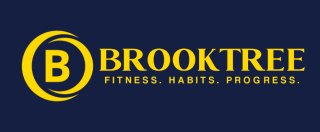
Navigating Postmenopause: Understanding Brain Fog, Exercise, and Health
Oct 10, 2024For many women, navigating menopause can feel like braving a storm. The early postmenopausal stage often brings an array of symptoms—hot flashes, mood changes, brain fog—that can feel relentless. But as time passes, around six years after the final menstrual period, a shift occurs. Women transition into the late postmenopausal stage, which they live in for the rest of their lives. The journey through postmenopause is unique, with some women experiencing relief as symptoms subside, while others face continued challenges.

The Ups and Downs of Brain Fog During Postmenopause
Brain fog—a frustrating symptom for many women in menopause—tends to follow a U-shaped pattern. Before menopause, cognitive function is typically high, but during the menopausal transition, it can take a noticeable dip. Thankfully, brain function often recovers over time, although it may not always return to pre-menopausal levels.
Interestingly, recent research suggests that specific changes in the brain are strongly associated with menopausal brain fog. This insight could pave the way to understanding why some women experience prolonged symptoms, potentially pointing to early signs of cognitive decline or dementia. While this may sound concerning, ongoing research aims to uncover why some women maintain cognitive function post-menopause and explore therapies that might support cognitive health.
Why Exercise Matters for Menopause and Beyond
Exercise is a powerful tool for supporting health during and after menopause. It benefits everything from brain health to heart health, thanks to the way it promotes the production of proteins that support neuronal health. Different types of exercise offer unique benefits during this stage of life:
-
Cardiovascular Activity: This can alleviate hot flashes and improve cognitive symptoms like brain fog.
-
Strength Training: Important for preserving bone density and supporting metabolism, strength training also helps stabilize mood, which can be a key benefit during hormonal shifts.
-
Flexibility and Mind-Body Exercises: Practices like yoga, Pilates, and Tai Chi not only support flexibility but also help with stress reduction and improve sleep quality.
Research underscores the value of regular, moderate-intensity exercise. For instance, one study involving over 3,500 Latina women showed that those who engaged in regular exercise were 30% less likely to experience severe hot flashes compared to those who were less active. This is compelling evidence for incorporating movement into daily life.

Making Time for Exercise in Midlife
Many women in their 40s and 50s face multiple responsibilities, from raising children to caring for aging parents, while navigating career demands and now menopause. Time constraints and energy levels often pose significant barriers to consistent exercise. However, it's essential to recognize that exercise doesn't require fancy clothes or a gym membership. Simple activities like a walk in the park or a short at-home workout can make a world of difference.
Avoiding the Pitfall of Over-Exercising
It’s also possible to overdo it. Studies suggest that, especially for recently postmenopausal women, there’s an optimal intensity for exercise. Moderate intensity is often most beneficial for overall health, aligning with what athletes call "zone 2" training. This level of exercise raises your heart rate without leaving you breathless, allowing you to sustain a conversation comfortably. For most women, this is a sweet spot that balances health benefits with sustainability.
Exercise for Lifelong Health
As you embrace this new stage of life, remember that it’s about consistency over intensity. Regular, moderate exercise can support mental clarity, physical strength, and emotional well-being as you navigate postmenopause. By finding a sustainable routine that works for you, you’re investing in a healthier, happier future.

At Brooktree Consulting, I specialize in helping women like you navigate the complexities of postmenopause through personalized wellness strategies. Whether you’re looking to improve cognitive health, manage symptoms, or establish a sustainable exercise routine, my tailored programs can guide you every step of the way.
Ready to reclaim your health? Schedule a discovery call today, or become a client and start your journey to better wellness. Together, we can help you thrive in postmenopause and beyond.
Mind, Body, Balance
Tailored for subscribers and potential clients, this newsletter offers fresh perspectives on nutrition, fitness, and holistic living. Discover practical tips, expert guidance, and stories of real change to inspire your path toward a healthier, more balanced life.
We hate SPAM. We will never sell your information, for any reason.

